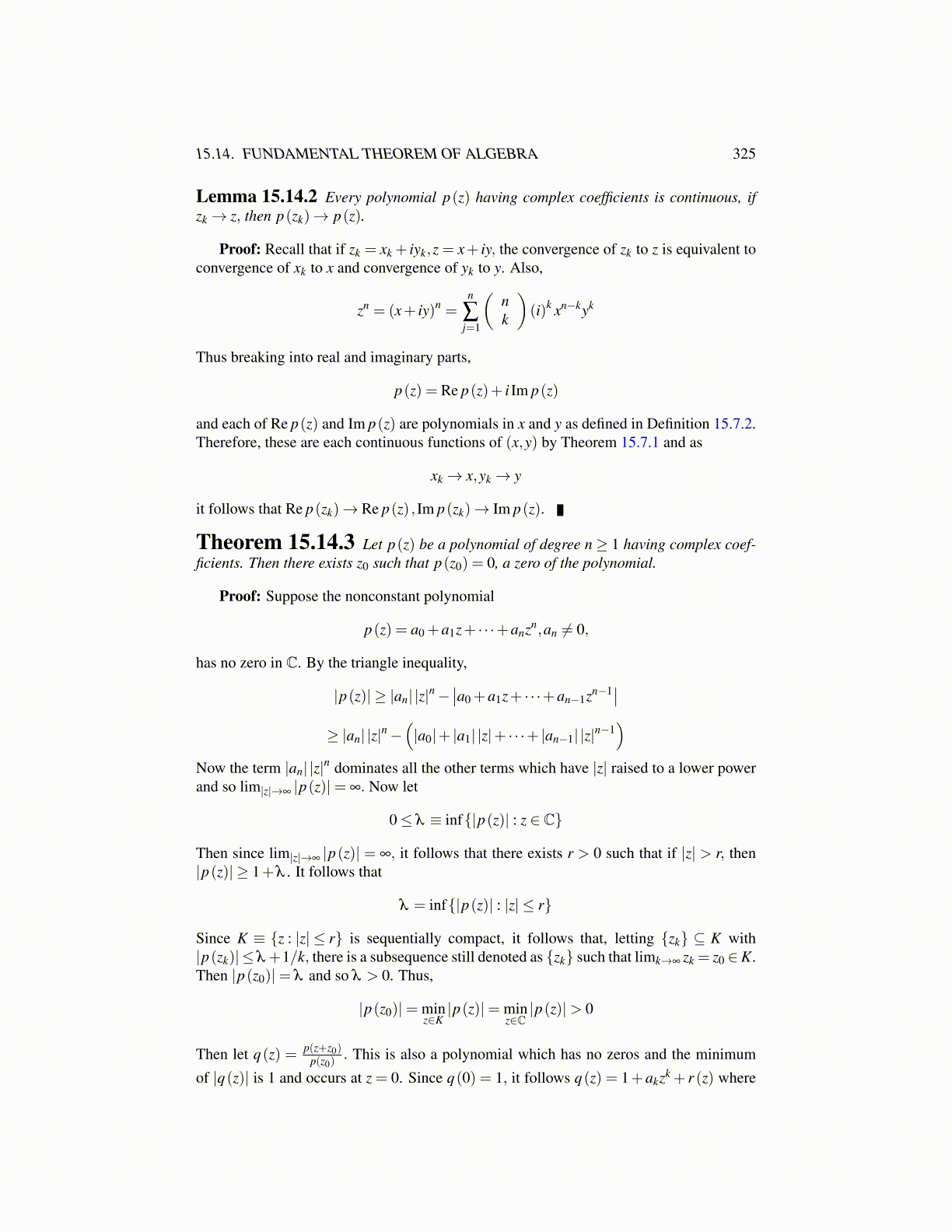
15.14. FUNDAMENTAL THEOREM OF ALGEBRA 325
Lemma 15.14.2 Every polynomial p(z) having complex coefficients is continuous, ifzk → z, then p(zk)→ p(z).
Proof: Recall that if zk = xk + iyk,z = x+ iy, the convergence of zk to z is equivalent toconvergence of xk to x and convergence of yk to y. Also,
zn = (x+ iy)n =n
∑j=1
(nk
)(i)k xn−kyk
Thus breaking into real and imaginary parts,
p(z) = Re p(z)+ i Im p(z)
and each of Re p(z) and Im p(z) are polynomials in x and y as defined in Definition 15.7.2.Therefore, these are each continuous functions of (x,y) by Theorem 15.7.1 and as
xk → x,yk → y
it follows that Re p(zk)→ Re p(z) , Im p(zk)→ Im p(z).
Theorem 15.14.3 Let p(z) be a polynomial of degree n ≥ 1 having complex coef-ficients. Then there exists z0 such that p(z0) = 0, a zero of the polynomial.
Proof: Suppose the nonconstant polynomial
p(z) = a0 +a1z+ · · ·+anzn,an ̸= 0,
has no zero in C. By the triangle inequality,
|p(z)| ≥ |an| |z|n −∣∣a0 +a1z+ · · ·+an−1zn−1∣∣
≥ |an| |z|n −(|a0|+ |a1| |z|+ · · ·+ |an−1| |z|n−1
)Now the term |an| |z|n dominates all the other terms which have |z| raised to a lower powerand so lim|z|→∞ |p(z)|= ∞. Now let
0 ≤ λ ≡ inf{|p(z)| : z ∈ C}
Then since lim|z|→∞ |p(z)| = ∞, it follows that there exists r > 0 such that if |z| > r, then|p(z)| ≥ 1+λ . It follows that
λ = inf{|p(z)| : |z| ≤ r}
Since K ≡ {z : |z| ≤ r} is sequentially compact, it follows that, letting {zk} ⊆ K with|p(zk)| ≤ λ +1/k, there is a subsequence still denoted as {zk} such that limk→∞ zk = z0 ∈K.Then |p(z0)|= λ and so λ > 0. Thus,
|p(z0)|= minz∈K
|p(z)|= minz∈C
|p(z)|> 0
Then let q(z) = p(z+z0)p(z0)
. This is also a polynomial which has no zeros and the minimum
of |q(z)| is 1 and occurs at z = 0. Since q(0) = 1, it follows q(z) = 1+akzk + r (z) where